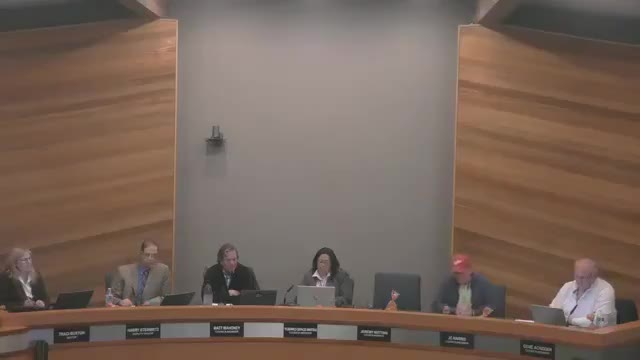Des Moines partners with King County on water-taxi feasibility study; council approves consultant contract
Get AI-powered insights, summaries, and transcripts
Subscribe
Summary
The council authorized a memorandum of understanding with King County Metro to study a potential Des Moines–Seattle water taxi and approved a $100,000 contract with Nelson ygaard to perform transportation and economic analysis under a Department of Commerce grant; motions were unanimous.
The Des Moines City Council authorized two actions to advance a Department of Commerce grant-funded study of a potential water taxi service between Des Moines and Seattle: (1) an MOU with King County Metro to collaborate on operational, ridership and feasibility work; and (2) a consulting contract with Nelson Nygaard in an amount not to exceed $100,000 to perform the transportation and economic analysis required by the grant. Both votes were unanimous.
City Manager Catherine Caffrey described the grant’s objectives as community engagement, operational and ridership analysis, cost estimates, and evaluation of whether a ferry would serve underserved communities. The MOU allows the city to use King County Metro’s technical expertise and staff capacity while preserving the city’s responsibility for grant administration. Caffrey emphasized the county’s likely role as the operational service provider if the proposal advances.
Nelson Nygaard will perform travel-pattern and market analysis, stakeholder outreach targeted to communities the grant prioritizes, and an alternatives analysis that compares a commuter ferry baseline (diesel vessel) against other transit options. Staff said Nelson Nygaard will also provide a supplemental memo estimating the costs of electric vessels; King County Metro has indicated fleet-electrification timelines remain uncertain and the county requested diesel baseline analysis with electric supplemental costing. The economic impacts portion of the grant will be provided under a separate, smaller contract with Burke (under $50,000) to estimate local commercial and economic-development effects.
The MOU and Nelson Nygaard contract passed unanimously. Staff said the consultant work will begin in November with anticipated deliverables and presentations in early 2026; the full grant-funded study will be shared with the council and King County Metro leadership when complete.
Ending: The study will inform county and city decisions about whether and how a water taxi might operate and whether alternatives such as expanded bus service better meet mobility and equity goals; staff will report results to the council when analysis is complete.
